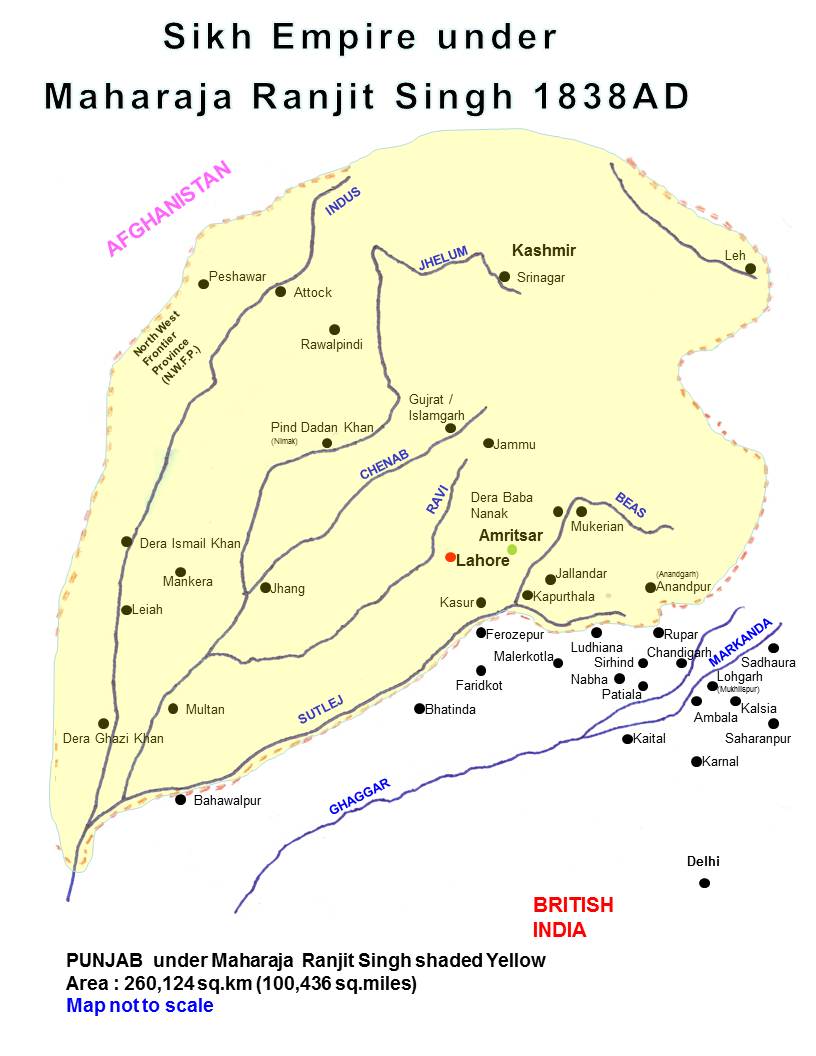
Growth of Deccan, Punjab and Bengal as independent and semi independent States
History of Punjab:
At the end of the eighteenth century, Ranjit Singh, chief of the Sukerchakia Misls, rose to prominence. A strong and courageous soldier, an efficient administrator, and a skillful diplomat, he was a born leader of men.
He captured Lahore in 1799 and Amritsar in 1802. He soon brought all Sikh chiefs west of the Sutlej under his control and established his own kingdom in the Punjab. Later, he conquered Kashmir, Peshawar, and Multan.
The old Sikh chiefs were transformed into big zamindars and jagirdars. He did not make any changes in the system of land revenue promulgated earlier by the Mughals. The amount of land revenue was calculated on the basis of 50 percent of the gross produce.
Ranjit Singh built up a powerful, disciplined, and well-equipped army along European lines with the help of European instructors. His new army was not confined to the Sikhs. He also recruited Gurkhas, Biharis, Oriyas, Pathans, Dogras, and Punjabi Muslims.
He set up modern foundries to manufacture cannon at Lahore and employed Muslim gunners to man them. It is said that he possessed the second best army in Asia, the first being the army of the English East India Company.
Ranjit Singh had great capacity for choosing his ministers and officials. His court was studded with outstanding men. He was tolerant and liberal in religious matters. He patronized not only Sikh but also Muslim and Hindu holy men. Many of his important ministers and commanders were Muslims and Hindus.
The most prominent and trusted of his ministers was Fakir Azizuddin, while his finance minister was Dewan Dina Nath. His was a state based on equal opportunities for all. Political power was not used for exclusive Sikh benefit.
On the other hand, the Sikh peasant was as much oppressed by Sikh chiefs as was the Hindu or Muslim peasant. In fact, the structure of the Punjab as a state under Ranjit Singh was similar to the structure of the other Indian states of the eighteenth century.
When the British forbade Ranjit Singh in 1809 to cross the Sutlej and took the Sikh states east of the river under their protection, he kept quiet for he realised that his strength was no match for the British. Thus by his diplomatic realism and military strength he temporarily saved his kingdom from English encroachment.
But he did not remove the foreign threat, he only left it for his successors. And so, after his death, when his kingdom was torn by an intense internal struggle for power, the English moved in and conquered it.


